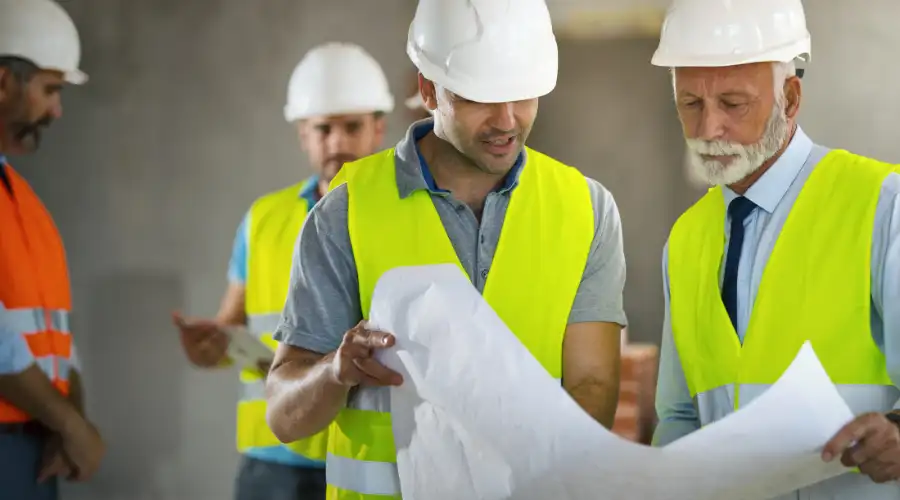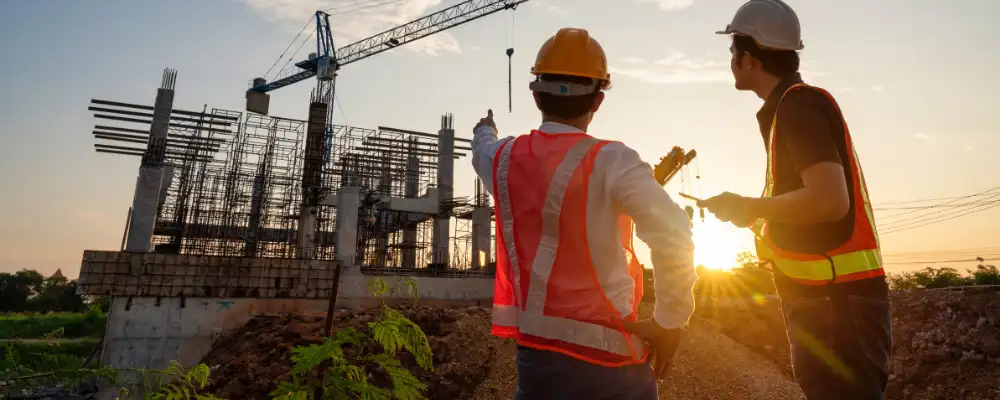Supervision and inspection are two fundamental elements in construction that ensure that project delivery is done on time, within the budget, and as specified. The two terms are generally used as synonyms, but are fundamentally different from each other. Supervision is managing a flow of daily work and coordinating all the necessary people. Inspection refers to the verification that the construction conforms to the set regulations and standards, as well as the requirements. Keep reading to understand exactly what the two entail and the differences between them.
Overview of Supervision in Construction
The practice of overseeing construction work is referred to as construction supervision. The supervisor will monitor the workforce, materials, and equipment used in construction to make sure that the project is progressing according to the schedule. His/her responsibilities will be supplying and setting time frames, coordinating the activities of the workers, and taking measures to ensure a safe construction site preparation.
Overview of Inspection in Construction
Inspecting is a crucially important step that involves examining different aspects of a construction project. Typically, inspectors check the adherence of a project to regulations of safety, National building codes, or contracts. Usually, inspections are done at critical stages of a project, such as when concrete is poured or when the foundation of a building is completed.
Key Differences Between Supervision and Inspection
Supervision and inspection are quite different from each other, yet are very important and certainly integral to a construction project. Here is a list of the differences between the two:
1. Roles and Responsibilities
Supervision
- Task Allocation and Supervision: Supervisors play a major role in labour and subcontractor distribution by determining the particular tasks they have to do and ensuring the availability of the necessary resources and machinery. They also take the initiative to make the whole project proceed smoothly every day by monitoring its progress, making sure it is on time and within the budget.
- Safety Management: The supervisors’ main duty is to ensure the observance of safety rules. They conduct safety briefings, and check the site for dangerous zones regularly. Their ultimate aim is to keep the environment where the work is conducted injury-free.
- Quality Control: The supervisors keep an eye on the work and the materials used in the work and verify whether these meet the requirements and standards of the project and industry. If any defects are there, they solve them in time to maintain the schedule of the project.
- Scheduling and Coordination: They formulate, modify, and prepare construction schedules, also modifying the plans to deal with interruptions caused by weather, lack of materials and other such issues, thus ensuring the smooth running of the project.
- Resource Management: Supervisors effectively maintain labour, materials, and equipment, make deals with suppliers and subcontractors to guarantee punctual delivery, and check that everything is used in the best way to save time and prevent wastage.
Inspection
- Regulatory Compliance Checks: Inspectors ensure that the methods and materials used in construction are in accordance with the local and national building codes, safety regulations, and permits; hence, they are the ones to verify that everything is legal and in compliance with the regulations in force.
- Quality Assurance Inspections: Inspectors verify whether adequate quality is maintained to ensure the safety of a building. They compare materials and workmanship with the technical specifications and industry standards, discover deviations, and ensure that repairs are made and sufficient quality is maintained.
- Material Testing: Performing or coordinating testing (i.e., tests on concrete compressive strength, soil compaction tests) ensures that the materials used are of the required safety, strength, and performance standards for the project.
- Documentation and Reporting: Inspectors not only keep detailed inspection records but also issue reports that are a source of compliance status, non-conformities, and corrective actions of the project; thus, project managers and regulatory bodies are also made aware of that.
- Problem Identification and Resolution: Inspectors recognize potential problems at an early stage. They can discuss the issues with the supervisors or contractors, implement corrective actions, and thus prevent defects, procedural weaknesses, or safety hazards in the project.
2. Application
Quality Control
- Supervisors ensure that everything matches the requirements of the project.
- Inspectors validate that the construction is of the required quality and meets the standards and engineering norms.
Safety Compliance
- Supervisors make the safety regulations based on project needs.
- Inspectors identify potential risks on the site and ensure the necessary safety measures are in place.
Resource Management
- Supervisors regulate workforce, materials, and equipment usage with efficiency.
- Inspectors have no role in resource management.
Regulatory Compliance
- Supervisors check whether the work follows architectural, structural and all other project drawings issued.
- Inspectors, on the other hand, are the ones to control legality and industry standards of conformance.
Progress Monitoring
- Supervisors keep track of project timelines and ensure that the completion of the tasks takes place without delay.
- Inspectors confirm the achievement of the milestones and evaluate the project progress.
Cost Control
- Supervisors regulate the project budgets and, at the same time, reduce the wastage of resources.
- Inspectors do not have any role in cost control.
3. Skills and Qualifications
Supervision
- Skills: Leadership, communication, problem-solving, team/project/ site management.
- Qualifications understanding building science and building systems, an educational background in construction management, engineering, project management, or other similar areas, is common. The Project Management Professional (PMP) Certification and Construction Supervisor Certification are also valuable certifications.
Inspection
- Skills: Attention to detail, understanding of building codes & standards, strong communication skills.
- A degree in civil engineering or construction technology is typical. Most inspectors also hold certifications from professional bodies.
4. Requirements
Supervision
- Education: Most employers require a degree (or diploma) in civil engineering, construction management, or architecture, although this is not mandatory.
- Experience: Several years of experience on the construction site, including experience as a supervisor.
- Certifications: Certification from an established, recognised construction project management association is an asset.
Inspection
- Education: Most inspectors have a degree in civil engineering, building construction, or architecture.
- Experience: Must have practical experience working in construction and have an understanding of local and national building codes and standards.
- Certifications: Certification from a recognized organisation, such as the National Association of Construction Inspectors (NACI), can be considered an asset.
5. Collaboration
For successful construction to occur, there must be effective collaboration between the supervisor and the inspector. The supervisor ensures that construction progresses according to the plans and schedules by performing daily oversight. The inspector verifies that the work has been completed by codified regulations and the project’s quality standards. Frequent communication allows easy and quick issue identification and resolution, keeping the construction moving forward.
| Aspect | Supervision | Inspection |
| Frequency | Ongoing daily oversight | Periodic at specific milestones |
| Role | Manages daily activities and workforce | Evaluates compliance with regulations and quality standards |
| Responsibility | Ensures work is completed on time and according to the plan | Verifies that work meets safety and quality standards |
| Authority | Direct authority over workers and tasks | Limited authority advisory role |
| Documentation | Daily logs and progress reports | Detailed inspection reports and compliance checklists |
Benefits of Supervision in Construction

Collaboration through supervision provides a long list of benefits,
- Improved Productivity: Ensures the work is progressing according to the schedule and promotes effective use of resources.
- Improved Safety: Helps identify potentially dangerous hazards and subsequently mitigates the risk.
- Quality Assurance: Ensures the work directly follows the plans and specifications of the project.
- Reduced Delays: Helps provide an early identification of issues, preventing delays and avoidable cost overruns.
Benefits of Inspection in Construction
Routine inspections provide substantial benefits,
- Assurance of Compliance: Assures conformance to local building codes and safety standards.
- Quality Control: Helps maintain the level of workmanship and material selection.
- Reduces Risks: Identifies issues early, reduces occurrence of costly mistakes that can lead to building failure.
- Project Validation: Assures the project is being executed according to the plans and is in compliance with contract documents.
Conclusion
Supervision and inspection are both important parts of construction works. For example, supervision is the way to go when it comes to the smooth running of everyday tasks, and inspections are the means of ensuring compliance with all the rules and regulations that have been set. The clarity in the differentiation of the functions of the supervisor and the inspector, in addition to advocating teamwork, will decisively result in construction projects being done with the shortest possible time, safely, and with minimal budget constraints.

